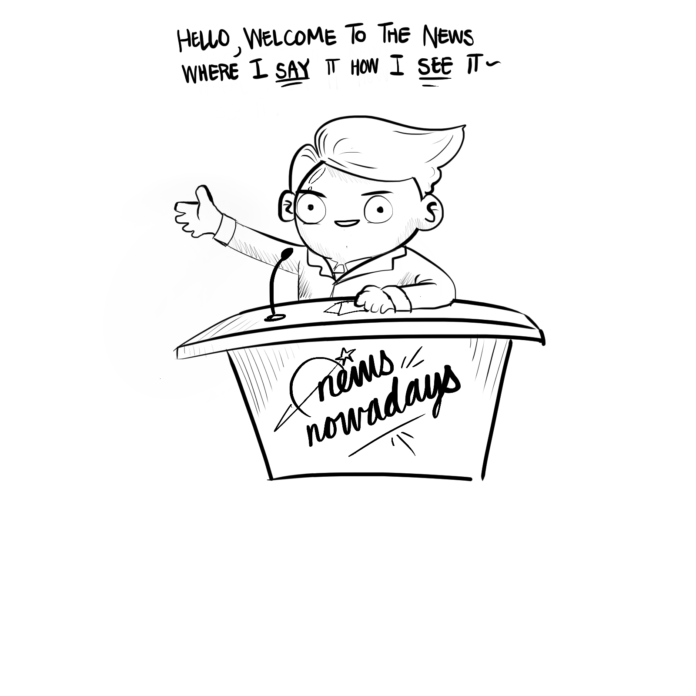Opinions make the world go ’round. Without passion, we would never have seen the instigation of the civil rights movement, women’s suffrage or the Vietnam War protests. However, in the media today we have seen a startling shift away from pure informational news toward a faster-paced, biased commentary. With broadcast stations hiring personalities with a personal agenda and newspapers selecting stories that fit with their bias of choice, the lack of objective news has begun to misinform the public. We implore media outlets to differentiate between fact-based news and commentary and encourage audiences to dig deeper and decide for themselves what to believe instead of taking news at face value.
People look for news that supports their ideology. That simple fact is what draws people to certain religions, certain political parties and most recently, certain news stations. When it comes to the news, however, an important distinction needs to be made between what the media outlet collectively supports and what they decide to share with the audience. Reporters and broadcasters have the power to decide what is news, but more importantly, as Americans, they have the responsibility to inform the public about what is really happening in the country. If Bob Woodward hadn’t followed up on the alleged robbery in the Watergate complex, Richard Nixon probably would have completed his term in office, and our country could be drastically different today.
The problem with having so much power over the public’s knowledge is that our media has started to harness it to push their personal or political agendas. Commentators such as Sean Hannity and Anderson Cooper are now tasked with not only sharing their opinion, but also sharing the news simultaneously. In doing so, news has effectively merged with opinion, and the two are becoming increasingly indistinguishable and more untrustworthy by the day.
Take, for instance, the Washington Post’s release of the 2005 Donald Trump tape, in which he speaks in a cruel and demeaning way about women. A reader who firmly adheres to the Washington Post’s liberal ideology would take that information at face value and use it as another argument against the Trump campaign. On the other hand, a firm supporter of Trump who follows conservative news organizations such as Fox News would argue that the Post, which has publicly declared its support for Hillary Clinton, is using that news to further their vilification of Trump. To someone who is undecided on their voting choice, it would be practically impossible to determine who to vote for because each news outlet has its own bias that is swaying the reader’s personal opinion.
It is easy for the unsuspecting citizen to fall into this trap because with the increasingly low attention span of Americans and constantly streaming social media, the news does not resonate with readers/viewers for long. According to a study done by Dr. Martin Hilbert and a research team at University of Southern California, the average person is “bombarded by the equivalent of 174 newspapers worth of data a day,” due to social media. This insane amount of information is forcing news stations to compete with a constant stream of interesting new stories. In return, the media is starting to over-exaggerate news in order to draw and keep the viewer’s attention. While eye-catching headlines have always been used to bring flair to news stories, news outlets have rarely employed this tactic at such a staggering rate before.
In this ever-changing digital world, it is up to journalists to remember that the very basis of their job is hard fact. While there no objectivity in life, there can be objectivity in sharing news, and it is up to us to find the balance between personal interest and careful, factual reporting. And to the audience, we say this: acknowledge that everything you are hearing in the news is being shared with you by a human — a human who has the same inclination toward bias as you. Take what you are being told, find the facts behind it and decide for yourself what you believe instead of allowing yourself to be fed an ideology.






